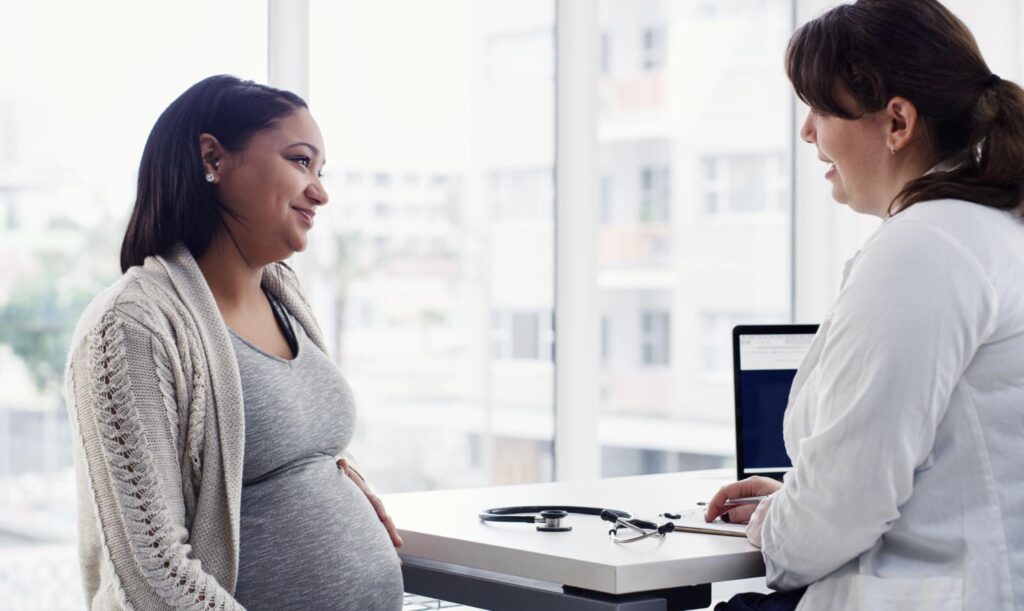You might have been seeing us for a while now, or you’re on the lookout for a new OBGYN. Do you know what to expect at our office? Today, the Memphis Obstetrics & Gynecological Associationwill answer that question: What should you expect during your annual OBGYN appointment?
What Happens at My Check-Up?
During an annual gynecological or pelvic exam, your providerwill evaluate and monitor the health of your reproductive system. We will conduct various screenings, tests, and assessments based on your specific condition, including:
- Medical History: Your chosen provider at Memphis Obstetrics & Gynecological Association will review your medical history, including past illnesses, surgeries, pregnancies, menstrual history, contraceptive use, sexual activity, and family medical history. This is also an ideal time to discuss any current concerns you may have.
- Physical Exam: Your exam may include:
- Breast examination to check for lumps, changes in shape and size, or other abnormalities. We may also determine the need for a mammography.
- Examination of the external genitalia for signs of inflammation, infection, or abnormalities.
- Pelvic examination, which involves inserting a speculum into the vagina to visualize the cervix, vagina, and surrounding structures. A Pap smear may also be performed to screen for cervical cancer by analyzing the collected cells.
- Screenings or Tests: Based on your age, medical history, and risk factors, we may recommend additional screenings or tests, such as:
- Screening for STIs (sexually transmitted infections) using blood tests, urine tests, or swabs.
- Testing for HPV (human papillomavirus), especially in women over 30, since HPV is a risk factor for cervical cancer.
- Screening for breast cancer through clinical breast exams, mammograms, or breast ultrasounds.
- Pregnancy tests or fertility assessments.
- Discussion and Counseling: Your provider will review the results of the examinations and screenings with you, offering guidance and treatment if necessary. We can also discuss lifestyle factors affecting your reproductive health, such as diet, exercise, and quitting smoking or other substance use.

How Often Do I Need An Exam?
The frequency of your exams is entirely dependent on various factors, like age, health history, and risk factors.
- Age Group:
- Adolescents: A first gynecological visit is typically recommended between ages 13 and 15 or when a person becomes sexually active. This visit is an opportunity for monitoring and asking important questions.
- Women in their 20s: Annual check-ups are generally recommended for sexually active women to screen for STIs, discuss contraception options, and perform cervical cancer screenings if needed. These visits also address any breast-related issues.
- Women in their 30s and 40s: Annual check-ups are still common, but the frequency can be adjusted based on individual needs.
- Women Over 40: Annual check-ups are crucial, with additional screenings for breast cancer, menopause-related issues, and osteoporosis.
- Health History and Risk Factors
- Women with a family history of conditions such as breast cancer or ovarian cancer may need more frequent check-ups or extra screenings.
- Those with existing medical conditions like diabetes or autoimmune disorders might also require additional monitoring.
- Pregnancy Planning or Pregnant Women:
- Women who are planning to conceive or are already pregnant should follow their OBGYN’s guidance, which may include more frequent visits during the pregnancy.
- Post-Menopausal Women:
- Post-menopausal women should continue to have regular check-ups to monitor their bone health, vaginal health, and overall well-being.
FAQs
These are some extra questions you can utilize as a reference. Our office is also accessible to address any queries you may have before or after your appointment!
Q: Are gynecological appointments covered by insurance?
It varies depending on your coverage plan and the specific appointment. Many plans do cover preventive care services, including gynecological ones. If you’re unsure, it’s always best to check with your insurance companybefore your visit.
Q: Can I request a female provider?
Absolutely, we’re happy to accommodate your preference for a provider based on gender. Just be sure to make this request before your appointment.
Q: Are gynecological exams painful?
They shouldn’t be excessively painful. You may feel some discomfort, especially if it’s your first time. If you experience significant pain, please inform your provider.
Q: What should I do to prepare for my appointment?
Consider any current conditions you want to discuss and jot them down if needed. Also, gather information about your medications, allergies, and past surgeries.

The Best Possible Care
At Memphis Obstetrics & Gynecological Association, we are delighted to assist women in understanding how to optimize their self-care and reproductive health, as this information may not always be widely known. Our dedication lies in ensuring that this knowledge is readily available through our providers and practice. To schedule your firstor follow-up appointment, you can contact our Bartlett, East Memphis, Germantown, or DeSotooffices.



